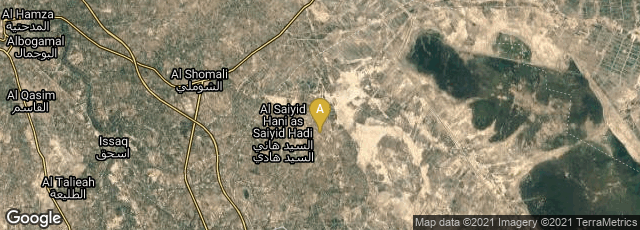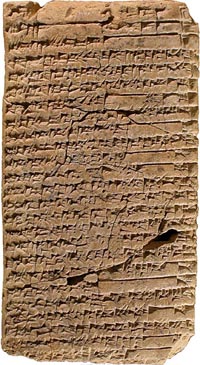

A: Al-Qādisiyyah Governorate, Iraq
Fragments of the Instructions of Shuruppak (c. 2600 BCE — c. 2500 BCE). Museum of the Oriental Institute, University of Chicago.

The Instructions of Shuruppak, one of the earliest surviving literary works, is a Sumerian "wisdom" text. This was a genre of literature common in the Ancient Near East intended to teach proper piety, inculcate virtue and preserve community standing.
The text was set in great antiquity by its incipit: "In those days, in those far remote times, in those nights, in those faraway nights, in those years, in those far remote years." The precepts were placed in the mouth of a king "Shuruppak, son of Ubara-Tutu." Ubara-Tutu was the last king of Sumer before the universal deluge.
The oldest known copy of the Instructions of Shuruppak was the Abu Salabikh Tablet found at Abu Salabikh, near near the site of ancient Nippur in Central Babylonia (now southern Iraq). Abu Salabikh marks the site of a small Sumerian city of the mid third millennium BCE. It was excavated by an American expedition from the Oriental Institute of Chicago in 1963 and 1965, and was a British concern for the British School of Archaeology in Iraq (1975–89), after which excavations were suspended with the Iraqi invasion of Kuwait in 1990.
"The city, built on a rectilinear plan in Early Uruk times, revealed a small but important repertory of cuneiform texts on some 500 tablets, of which the originals were stored in the Iraq Museum, Baghdad, and were largely lost when the museum was looted in the early stages of the Second Iraq War; fortunately they had been carefully published."